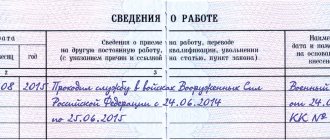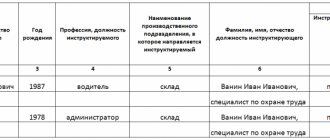What does the Security Service check?
The security service checks applicants according to several parameters, for which a certain set of measures is used within the framework of the law “on operational investigative activities.” First of all, employees check and control the following points:
- Screening candidates before hiring.
- Ensuring the safety of existing employees.
- Security of information that is a trade secret.
- Safety of enterprise property.
The purpose of the security service is to suppress possible economic problems and losses of the organization caused by both the actions of employees and the actions of competitors.
Comprehensive assessment of the applicant
Many citizens are looking for employment, and when they find it, they have to go through several more stages. To get a job in the place they like, their knowledge and skills must match the level of the company.
Checking an applicant by the security service consists of a set of practical measures:
- documentary research, requests to government agencies;
- testing;
- interviews;
- law enforcement agencies study polygraph responses.
Security efforts are aimed at working with candidates for:
- safety of material assets;
- confidentiality of information;
- theft prevention.
The manager must be confident in the employee, his moral stability, abilities, and absence of bad habits. After checking the employee by the security service, the specialist will be taken on a probationary period, during which time he will be under the supervision of a supervisory unit.
The employer fully trusts their certification. The opinion of these employees about the applicant has a significant advantage over other departments; the drafted memo will reflect all the characteristic details.
Getting a job in a commercial company
Large organizations have their own security service, most of whose employees are former officers or employees of law enforcement agencies and similar structures.
Additional responsibilities appear for this department: protection and protection of the interests of the organization, trade secrets, prevention of conflicts within the organization, prevention of thefts or other thefts. The actions of employees here are regulated by local acts adopted in the organization. It is difficult to say what the security service in such organizations is interested in and what it takes into account; it depends on the adopted acts, but there are basic points that always guide this service.
Mandatory criminal background check
First of all, the applicant is checked for the absence (presence) of a criminal record by sending a request to the appropriate government department.
This is done in order to understand whether the citizen being hired will have a negative impact on colleagues and the organization as a whole, and what can be expected from him. People who have been previously convicted of any criminal charges are practically not hired for administrative positions. Need to know! An expunged criminal record is not an obstacle to getting a job. It is permitted not to employ citizens with a criminal record only if the law prohibits the employment of people with a criminal record in your organization (Part 1 of Article 65 of the Labor Code of the Russian Federation).
Filling out the form
To simplify the verification procedures, the applicant for the declared vacancy fills out special questionnaires provided by the organization’s HR department, where he indicates the required information about himself. A prerequisite for admission is the citizen's written consent to the processing of personal data , after which the security service can begin checking the information received. If consent was not given, the organization will receive a fine in accordance with the Code of Administrative Offenses of the Russian Federation.
When applying for a job, security is not limited to a formal check of the submitted resume. Department specialists additionally check information about the status registered in psychoneurological and narcological dispensaries . Applicants of conscription age are checked for evasion of military service . The list of information to be verified depends on the direction of the organization’s activities.
Find out also how to pass a medical examination when applying for a job and what threatens the employer and employee in the event of unofficial employment.
Security service questionnaire sample:
What do they find out at the interview?
They prepare meticulously for the first meeting. The positive outcome of the employment agreement depends on the conversation with future management. A visual assessment will say more about a citizen than ideal papers and recommendations:
- appearance;
- neatness;
- restraint;
- correct judgments;
- grammatically correct speech;
- calm answers to the questions asked.
The security service's verification of a person is based on the psychological knowledge of its employees. They observe the manner in which the candidate talks about himself to characterize his personality. The interview takes place according to a developed scenario.
Even a candidate with a positive appearance is provoked by asking unpleasant questions to see how he will behave in an irritated state. Many professions require endurance in order to solve production problems calmly and psychologically. Conflicts and quarrels are not needed within the team and in communication with clients.
In unforeseen dangerous circumstances, help:
- composure;
- self-control;
- the ability to quickly assess a situation.
By creating tests for stability, citizens from a special department obtain from an applicant for a staff unit the disclosure of behavioral character; they examine his actions and actions in an aggressive environment.
How to verify the validity of the submitted documents
The employer may require documents based on Art. 65 Labor Code of the Russian Federation. The authenticity of the documents provided (passport, diploma, certificate, registration) will be examined by the security service. You can check the validity of the submitted documents on the websites of government agencies, for example:
- passport (civilian Russian Federation) is checked on the website of the Ministry of Internal Affairs;
- TIN is checked through the tax office website;
- a diploma or certificate of a specialist is verified by calling (or a written request) to the applicant’s educational institution;
- a person’s criminal record is checked through the court website;
- Judicial debt is checked through the FSSP website. You can also check there for the presence of administrative debts and open organizations in the name of the candidate;
- work experience is checked using the work book. Letters of recommendation from a previous place of work are also welcome, but today this is an exception to the rule rather than a general practice.
If there are doubts or for a more detailed check, the security service can call the place of previous employment, as well as ask questions to former colleagues and management. This is done in order to clarify the reason for dismissal and explain the relationship with the team. Sometimes they can tell about the character and morals of the employee, his resistance to stress, and draw up a psychological portrait.
Depending on the direction and scope of the company’s work, the candidate’s personal qualities can either prevent him from performing job functions or improve his performance. Some organizations also check the credit history of the future employee, as well as connections with competitors.
How is the security check carried out during employment?
It is no secret that any employer needs to protect its business from dishonest employees. That is why many large companies today employ specially trained people who monitor existing employees and screen potential candidates.
First of all, any serious company wants to prevent its staff from including people prone to embezzlement, fraud, or even simple theft. Therefore, today the company’s security service may well check not only a candidate for a management position, but also ordinary and even unqualified employees.
After all, even a cleaner or electrician may well commit a serious offense that will affect the normal work of the company and its team.
Therefore, when hiring, security officers check the widest possible range of information about a potential employee. First, the biography is checked for “dark spots” in the person’s history - whether there were any criminal records, whether he was registered with a psychiatrist or narcologist, whether there were large debts.
Some of this information is not visible in the public domain, but since the security service of companies often employs former law enforcement officers who still have relevant connections, it will not be difficult to “find out” whether a person appeared in criminal chronicles.
In addition, information from open sources, primarily from the Internet, is carefully analyzed. Few people think about it, but everything we write or add to the network remains there forever, so if you wish, just by having a computer at hand you can learn a lot of new things about a person.
In particular, in the registers of court decisions you can see whether a person participated in trials.
These could be, for example, cases of loans or alimony, or a banal dispute about inheritance, but the very fact of such cases already indicates the possible “problem” of the candidate (no one wants bailiffs to come to his company, even for someone else’s question).
Photos on social networks, messages on forums, advertisements - all this can provide much more information about the applicant than he himself wants to tell.
For example, a person whose VKontakte page profile is replete with photographs from nightclubs may alienate the employer - after all, an employee who abuses night entertainment with a certain degree of probability will not show himself very well during the working day.
In addition, if we talk about candidates for serious positions, then such a lifestyle can even harm the company’s reputation, and therefore hardly anyone will want to hire such an employee.
Both the composition of the family and the social circle of a potential colleague are of a certain importance for the security of companies. For example, the presence among relatives of people involved in financial fraud and communication with people leading an antisocial lifestyle can be a negative factor.
https://youtu.be/es5afPzrSck
Security guards can be quite reserved in their attitude towards a relative of a law enforcement officer (if you fire him, he will start creating problems for the entire company), and towards a person who has connections with direct competitors (commercial espionage today remains a big problem for any business)
In addition, sometimes a security officer is present during the interview (or even conducts it) and can pay attention to what the candidate himself says or writes about himself. A person with work experience can learn a lot about your character from your manner of communication, as well as catch you in a lie.
Therefore, it is very important to provide your employer with truthful information about yourself. Very often, people try to lie in such matters as work experience (inflating their length of service), the presence of conflicts with a previous employer (reason for leaving a previous job), the presence of third-party jobs, etc.
You shouldn’t do this, because the world is not that big, and perhaps the security service at your new place of work has sources of information about what you did in the previous months, and therefore, having caught you in an insignificant, but still a lie, will provide the authorities with negative information. recommendation regarding your future employment.
Try to avoid unpleasant stories. An untimely repaid loan or utility debt seems like a small thing to many young people.
But if such a matter goes to court, regardless of its outcome, it will have a bad impact on your biography and business reputation, and even such a small thing in the future may lead to a refusal to hire you.
And even more so, serious offenses and mistakes (such as offenses, criminal records) should not be allowed, because today it is much more difficult to delete information about a person than to obtain it.
When does the Security Service not let you through?
A negative response to the questionnaire can be due to objective reasons prescribed by law, or for personal reasons. In the second case, such refusal is considered illegal. There are often cases when the Security Council checks the personal pages of candidates on social networks, but this is not a reason for refusal. They cannot refuse because of the candidate’s qualities that are not related to the position held, as stated in Article 64 of the Labor Code of the Russian Federation. In fact, the security service can use the results of the check to identify the most suitable one from several candidates.
If a person does not agree with the decision of the security service, he has the right to challenge it in court, but in practice the employer will not lose anything; the court will only be able to satisfy compensation for moral damage. Often, the employer in such trials refers to “lack of business communication skills,” which is an unprovable argument, but a sufficient basis for refusing to hire. According to the law, this point is not regulated in any way.
https://youtu.be/Jz_O-S_MTqQ
Work organization
Security service during hiring has long become commonplace. Its powers are usually specified in local acts of the company, for example, in the relevant Regulations. The staff of such a department often includes former law enforcement officers who have retained their “connections” and willingly use them in their current activities. For example, a check by the Sberbank security service when applying for a job is a mandatory condition for applicants of this bank. When filling out the application form, candidates agree to have their information verified.
If it is not practical to maintain an independent structure, then they resort to the services of third-party companies specializing in this area.
Regardless of which option you use the following:
- information about place of residence;
- reliability of information about experience (experience);
- authenticity of documents, including education documents;
- no criminal record;
- information about disqualification.
The first three points apply to almost all applicants, but the criminal record is a special case. And if a teacher is found to have a criminal record, then this is grounds for refusal of employment. And if we are talking about a loader, then the law does not contain a mandatory requirement that the applicant has no criminal record. Consequently, if the security service refuses to hire a loader due to a criminal record, then this violates the rights of the potential employee. You can go to court.
But the whole difficulty of law enforcement practice in such cases lies in the need to prove the reason for the refusal. According to the Labor Code of the Russian Federation, at the request of the applicant, the reasons must be stated in writing. But, of course, no reasonable employer would indicate in writing a discriminatory argument.









